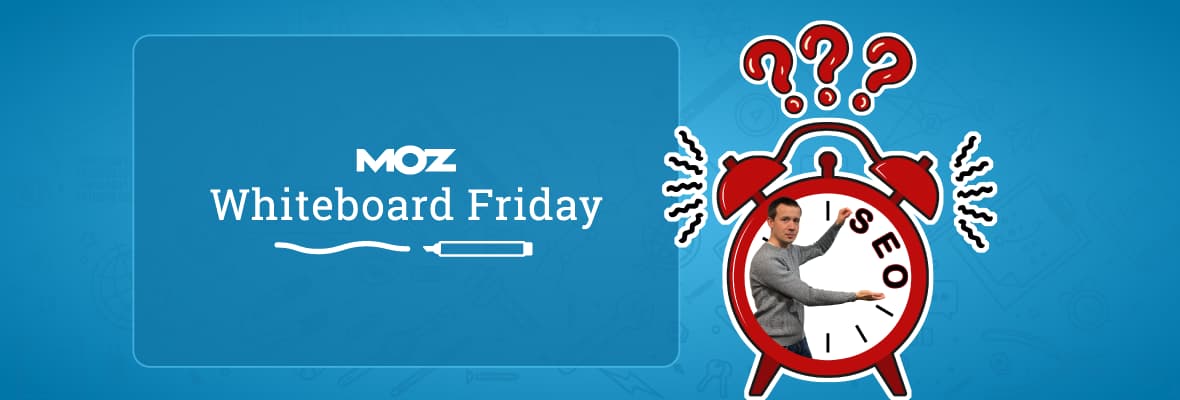

18 Real-Life Analogies to Explain SEO to Anyone
Struggling to explain or understand technical SEO? These real-life analogies simplify technical concepts, making SEO easier to understand and teach.
The industry's top wizards, doctors, and other experts offer their best advice, research, how-tos, and insights—all in the name of helping you level-up your SEO and online marketing skills.


Struggling to explain or understand technical SEO? These real-life analogies simplify technical concepts, making SEO easier to understand and teach.
![How To Launch, Grow, and Scale a Community That Supports Your Brand [MozCon 2025 Speaker Series]](https://moz.rankious.com/_moz/images/blog/banners/Mozcon2025_SpeakerBlogHeader_1180x400_Areej-abuali_London.png?auto=compress%2Cformat&fit=crop&dm=1747732165&s=beb7825c980a8c74f9a756ec91c8d68b)

Are you launching a community but struggling to gain traction? Learn a proven framework to build trust, drive engagement, and scale brand-aligned communities.


Unlock the accessibility advantage and boost your SEO with Lyssa’s Whiteboard Friday. Discover how creating a user-friendly website for everyone can significantly improve your search rankings and user experience.
![Clicks Don’t Pay the Bills: Use This Audit Framework To Prove Content Revenue [Mozcon 2025 Speaker Series]](https://moz.rankious.com/_moz/images/blog/banners/Mozcon2025_SpeakerBlogHeader_1180x400_Hellen_London.png?auto=compress%2Cformat&fit=crop&dm=1747758249&s=9f3c5b1b7421f862beace1cb513053bb)

Struggling to prove content’s revenue impact? Learn a practical audit framework to trim waste, forecast ROI, and show content’s true business value.


Looking to make the most out of attending your SEO conference experience? Discover how the right preparation can boost your team's strength, energy, and enthusiasm during and after events like MozCon. Whether you're a seasoned attendee or a first-timer, our guide will ensure you maximize the rewards and make the most of this fast-paced environment. Let's dive in and make your conference experience truly unforgettable.


Is informational content still worth it in the age of AI Overviews? Discover how to rethink informational content to drive value, trust, and product impact.


SEO coach Tazmin Sulliman shares her four-step framework for redesigning your career with authenticity. Learn how to set achievable goals, manage stress with her BRAVE technique, and celebrate your wins along the way. Remember—you're not starting from scratch, you're redesigning with purpose!
![How To Create an Integrated Strategy That Increases Brand Mentions and Visibility [Mozcon 2025 Speaker Series]](https://moz.rankious.com/_moz/images/blog/banners/Mozcon2025_SpeakerBlogHeader_1180x400_JamesH_London.png?auto=compress%2Cformat&fit=crop&dm=1747780409&s=9bf9f0a2623b4a8be6eaf8f235115505)

Is your SEO strategy falling flat in an AI-driven search world? Learn how integrated campaigns can boost brand mentions and visibility across every key channel.
![Last Click Attribution is Dead: Here’s How to Fix it [MozCon 2025 Speaker Series]](https://moz.rankious.com/_moz/images/blog/banners/Mozcon2025-Speaker-Blog-Header-1180x400_Luke-Carthy-London.png?auto=compress%2Cformat&fit=crop&dm=1747731954&s=0a7dbe2a99e197778e464aff2b463e05)

Tired of last-click attribution stealing all the credit? Learn how to build a smarter, full-funnel model that finally proves SEO’s true impact


Want to go beyond pageviews in GA4? Learn how to use custom event tracking to understand user journeys in SaaS and turn insights into growth.

Learn how to transform your brand from a digital unknown into a recognized entity in Google's Knowledge Graph. Jes Scholz's Whiteboard Friday guides you through three essential steps: crafting a clear brand identity, implementing proper schema markup, and building meaningful connections that boost your visibility across Google's ecosystem.


MozCon is hitting the road in 2025 with two incredible events! Join us in London (August 12) or New York (November 6) to learn from industry leaders like Lidia Infante, Andy Chadwick, and Areej AbuAli. Our speaker lineup spans technical SEO, AI content systems, creative PR, and community leadership. Delivering fresh insights and strategies you can implement immediately. Secure your spot today for the premier SEO event of the year!


Is SEO the right move for your business right now? This week's Whiteboard Friday video from Tom Capper tackles a fundamental question: when is the optimal time to do SEO, and what kind of SEO should you focus on? Get practical insights on essential elements like web presence and runway, plus considerations for brand building and content creation.


Struggling to organize your content for better SEO performance? Learn how topic clusters boost rankings, authority, and conversions—plus grab free templates to start now.